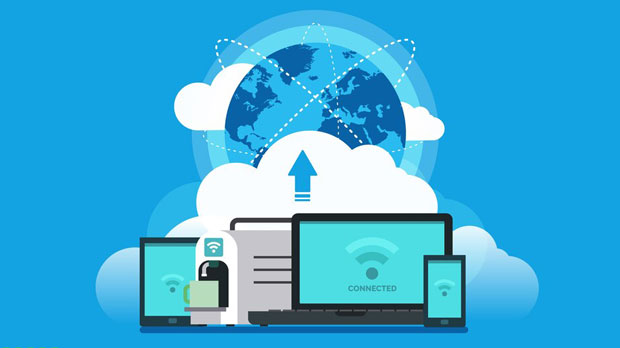In today’s digital landscape, TikTok has become a dominant platform for marketers seeking to connect with younger audiences. However, TikTok's global reach also means it enforces strict location-based restrictions and security protocols. To overcome these limitations and achieve effective marketing campaigns, utilizing ISP proxies and tools like SwitchyOmega can be a game changer. These tools allow marketers to mask their real IP addresses, simulate a global presence, and optimize ad targeting strategies. By delving into the need for ISP proxies and SwitchyOmega, we will explore their key benefits for TikTok marketing, including enhanced privacy, improved geo-targeting, and smoother campaign management. Understanding ISP Proxies and SwitchyOmegaBefore diving deeper into how ISP proxies and SwitchyOmega can benefit TikTok marketers, it is essential to understand what these tools are and how they work.ISP Proxies are a type of proxy server that uses an IP address assigned by an Internet Service Provider (ISP). Unlike regular data center proxies, ISP proxies are linked to real residential addresses, making them less likely to be flagged by websites or social media platforms. For TikTok marketers, using ISP proxies can create the illusion that their accounts or ads are being accessed from a legitimate local IP, improving the chances of ad delivery and reducing the risk of account bans.SwitchyOmega, on the other hand, is a browser extension that simplifies the process of managing proxy settings. It provides users with the ability to switch between multiple proxies effortlessly, allowing marketers to target specific regions and audiences on TikTok. This tool is ideal for managing large-scale campaigns and testing ads in various locations without needing to manually configure proxy settings every time.1. Enhanced Privacy and SecurityOne of the primary reasons for using ISP proxies in TikTok marketing is to maintain privacy and security. When running multiple TikTok accounts or testing various marketing strategies, maintaining anonymity is crucial. ISP proxies allow users to mask their real IP addresses, preventing TikTok from tracking their activities across multiple accounts. This is especially important for marketers running large-scale campaigns, as multiple accounts are often used for testing different ad creatives, targeting methods, and strategies.Furthermore, using ISP proxies can protect users from potential threats like IP banning. TikTok, like many other social media platforms, is vigilant about preventing spammy behavior and abusive practices. By utilizing ISP proxies, marketers can prevent their accounts from being linked together, reducing the chances of a ban due to suspicious activity.SwitchyOmega enhances this privacy aspect by making it easy for users to quickly change between different proxy servers, ensuring that their activities are constantly masked, even when testing multiple campaigns in real time.2. Improved Geo-Targeting CapabilitiesGeo-targeting is one of the most critical components of any digital marketing campaign, and TikTok’s algorithm relies heavily on location-based data to show users the most relevant ads. By using ISP proxies, marketers can simulate a presence in different geographic regions, allowing them to target specific locations and audiences more effectively.For instance, if a marketer wants to target users in a specific country or city, they can use an ISP Proxy from that region to ensure their ads are shown to the right people. This can significantly improve the efficiency of ad campaigns, as TikTok will serve ads to users based on their region, language, and preferences. This also helps businesses tailor their campaigns to local cultures, languages, and trends, increasing the likelihood of engagement.SwitchyOmega plays a vital role in this by enabling marketers to easily switch between proxies from different regions, ensuring that they can test ads in various markets without manually changing their settings each time. This flexibility is essential for marketers running campaigns across multiple countries or targeting diverse audiences.3. Overcoming Location-Based RestrictionsTikTok’s algorithm often restricts or blocks access to certain content based on the user’s location. This is especially problematic for marketers running international campaigns or trying to reach a global audience. By using ISP proxies, marketers can bypass these location-based restrictions by masking their real IP address and simulating access from different countries. This allows them to test content, track analytics, and target global audiences without being hindered by geographic barriers.SwitchyOmega is particularly useful in this scenario as it allows users to quickly change their IP address to any country of their choice, overcoming restrictions imposed by TikTok’s algorithm. This ensures that marketers can conduct global campaigns without limitations, reaching potential customers in different parts of the world.4. Faster and More Reliable Campaign TestingTesting is a critical part of any marketing campaign, and with TikTok’s constantly evolving algorithm, marketers need to test ad creatives and strategies in real-time. However, TikTok often limits the reach of ads from the same IP address, especially if those ads are flagged for suspicious activity. By using ISP proxies, marketers can ensure that their campaigns are not limited by these restrictions.SwitchyOmega allows users to switch between different proxy servers with ease, enabling them to test different ad creatives in various regions without worrying about hitting these limitations. This streamlined testing process saves time and improves campaign efficiency, ensuring that marketers can optimize their ads and achieve better results.5. Managing Multiple Accounts Without Risk of BanFor TikTok marketers managing multiple accounts, ISP proxies are essential to avoid detection. TikTok is known to link accounts to specific IP addresses, and running multiple accounts from the same IP can raise red flags, resulting in account bans or restrictions. ISP proxies allow marketers to assign each account a different IP address, making it more difficult for TikTok to identify and block accounts running from the same network.SwitchyOmega complements this by allowing users to switch between proxies effortlessly, ensuring that each account is using a unique IP address. This reduces the risk of account bans and ensures that marketers can run multiple accounts for testing or scaling purposes without any issues.6. Optimizing Ad Spend with Better TargetingTikTok's advertising platform allows marketers to create highly targeted ads based on users’ interests, behaviors, and locations. By using ISP proxies, marketers can ensure that their ads are being shown to the right audience at the right time. This not only increases engagement but also improves the efficiency of ad spend.For example, if a marketer wants to test a product in a specific city, they can use an ISP proxy from that location to ensure their ad is shown to users in that area. This level of geo-targeting is crucial for optimizing ad spend and maximizing return on investment (ROI).SwitchyOmega plays a key role in optimizing ad spend by allowing marketers to quickly change their proxy settings and test ads in multiple regions. This ensures that marketers can effectively target the right audience without overspending on ads that are unlikely to convert.In summary, ISP proxies and SwitchyOmega are powerful tools for marketers looking to optimize their TikTok campaigns. These tools offer enhanced privacy, improved geo-targeting capabilities, and the ability to bypass location-based restrictions, all of which are crucial for running successful marketing campaigns. By utilizing these tools, marketers can test ads more effectively, manage multiple accounts with ease, and optimize their ad spend for better results. Whether you’re targeting a local audience or running a global campaign, ISP proxies and SwitchyOmega provide the flexibility and security needed to succeed in TikTok marketing.
Apr 21, 2025



































































